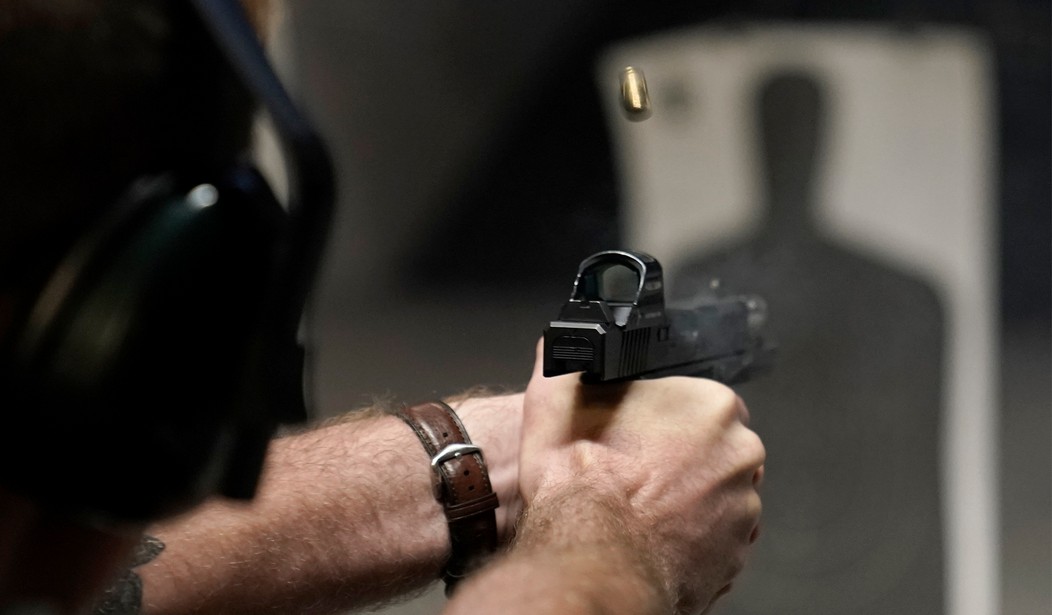The number of legally owned guns in Hawaii is falling, as are the number of applications to purchase and possess a firearm. Second Amendment supporters in the islands say it's not a lack of interest that's causing the decline. Rather, the state's restrictive gun laws are having a chilling effect on the exercise of a fundamental civil right.
Hawaii is one of a handful of states that require would-be gun owners to apply for a permit to possess a firearm, as well as requiring every lawfully owned firearm to be registered with the state. This week Hawaii Attorney General Anne Lopez issued her annual report on "Firearms Registration in Hawaiʻi", which documented the decline.
A total of 16,879 personal/private applications for permits to acquire firearms were processed statewide during 2024, marking a 28.3% decrease from 23,528 applications processed in 2023. Of the applications processed in 2024, 95.7% (16,147) were approved and resulted in issued permits, 2.8% (467) were voided (rejected for technical reasons), and 1.6% (265) were denied due to various disqualifying factors.The 16,147 permits issued statewide in 2024 cover a total of 44,624 firearms registered throughout the year, resulting in a 13.9% decrease from 51,807 firearms registered during 2023.
According to the report, this marks a sharp reversal of a decades-long trend of increased gun ownership and legally held firearms. Over the past 25 years, the number of statewide permit applications increased by about 160 percent, while the number of registered firearms jumped by nearly 228 percent.
So why are these numbers falling now, especially so soon after Hawaii's "may issue" law was wiped off the books because of the Bruen decision? Maybe it's because the state has erected new barriers between residents and their Second Amendment rights.
Andrew Namiki Roberts, director of the Hawaii Firearms Coalition, told the Honolulu Star-Advertiser that the drop in permit applications and total registrations is “extremely easy to explain.”
During the 2023 legislative session, lawmakers made a significant change to state law that required every person looking to purchase a firearm to retake a firearms education class, when previously one class was good for a lifetime.
“The new law now requires it to be taken every four years. This significant change places a new burden on those wishing to exercise their constitutional rights — both in terms of time and finances,” said Namiki Roberts. “Hawaii’s extremely limited access to public shooting ranges is also a major factor.”
He noted the Koko Head Shooting Complex has limited space, and the general facilities are “not conducive to proper firearms education classes.”
“The situation is even worse in the other counties, where ranges are either nonexistent or prohibit classes altogether,” said Namiki Roberts. “So, do I think this is a natural drop in permit applications and firearms acquisitions? No. This was the intent of the legislators and the governor. They have openly said for years that they want to make getting firearms harder and reduce the number of firearms in the state.”
Certain aspects of Hawaii's gun registration laws are already being challenged in court; specifically the 30-day window someone has to purchase a firearm after obtaining a permit to acquire, and the five-day window that gun owners have to submit their newly-purchased firearm for inspection by their local police department. Both of those requirements have been held unconstitutional by a district court judge and a three-judge panel on the Ninth Circuit Court of Appeals, though the state has requested an en banc hearing by a broader panel of Ninth Circuit judges.
I'm not aware, though, of any litigation that's directly related to the law imposing new training requirements on both would-be and current gun owners. Based on the steep decline in new applications and the number of registered firearms, which both buck the trends over the past 25 years, I'd say there's a strong case to be made that this permitting scheme is being used for "abusive ends", which SCOTUS noted in Bruen leaves them open to constitutional challenges.
The Bruen decision specifically invoked excessive fees and lengthy wait times in processing permits, but imposing a training standard that's nearly impossible to meet would apply as well, especially since we now have some evidence that the law is having a chilling effect on people's ability to exercise their 2A rights.
And as Namiki Roberts says, this wasn't an unintended consequence of the legislation. This is exactly what lawmakers were hoping for. Those anti-gun legislators aren't going to repeal this law on their own, which leaves the courts as the best vehicle to undo these infringements on a fundamental right.
Editor’s Note: President Trump and Republicans across the country are doing everything they can to protect our Second Amendment rights and right to self-defense.
Help us continue to report on their efforts and legislative successes. Join Bearing Arms VIP and use promo code FIGHT to get 60% off your VIP membership.








Join the conversation as a VIP Member